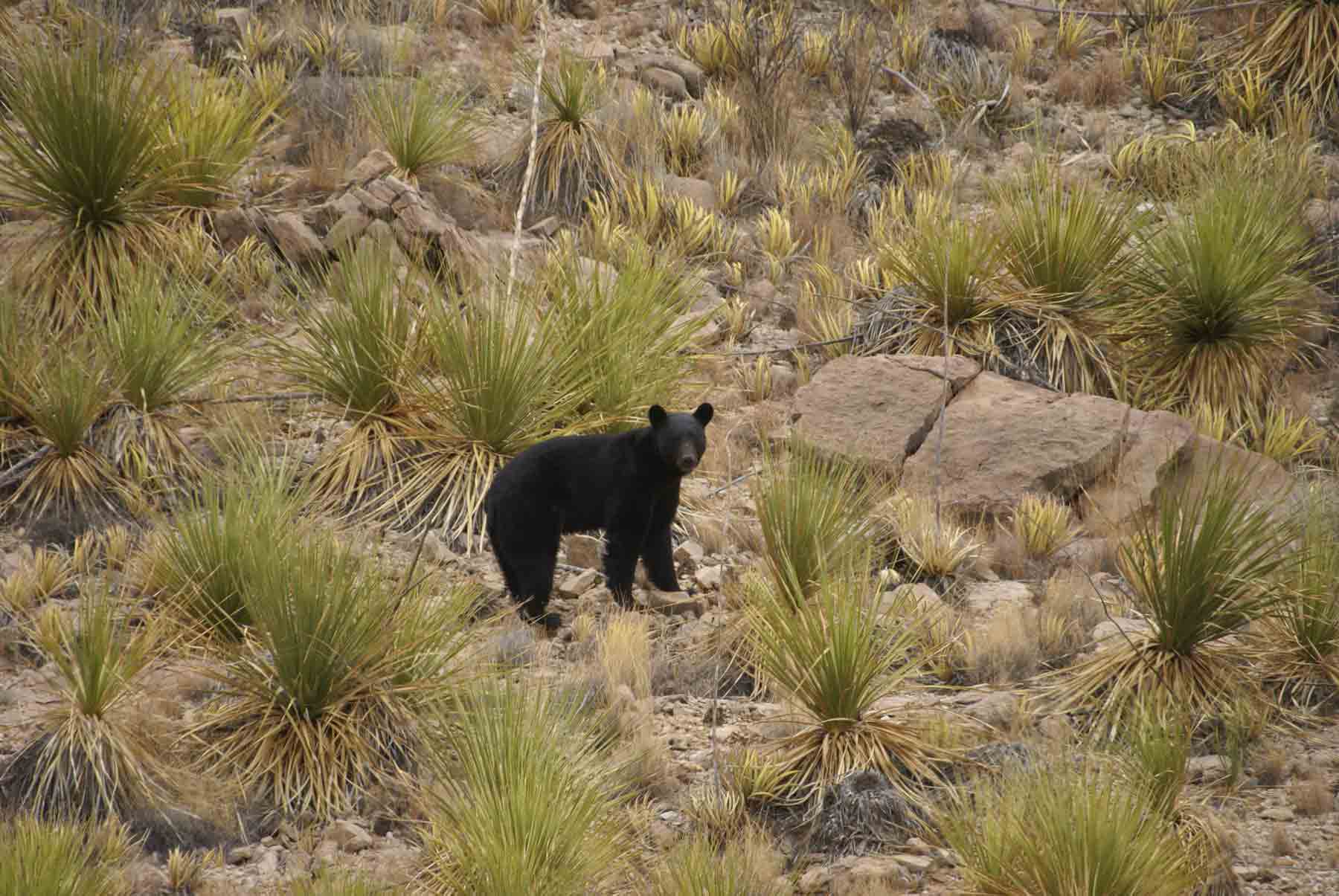
In the rugged backcountry of Brewster County, black bears are quietly reclaiming territory they once called home. It’s a natural success story—but one that comes with new responsibilities for the people who share that landscape.
“Brewster County is bear country,” said Dana Karelus, State Mammal Specialist for Texas Parks and Wildlife Department (TPWD). “These bears have recolonized the region on their own, and that’s something to celebrate. But it also means we need to adapt to living alongside them.”
That’s where BearWise® comes in—a national outreach program that helps communities and individuals live responsibly with black bears. TPWD recently hosted a public meeting in Alpine to introduce BearWise principles to residents. Nearly 50 attendees turned out, many who previously have never had to consider the potential for bears to be attracted to their trash bins, bird feeders, chicken coops, or outdoor pet food.
Karelus emphasized the importance of securing attractants and spreading awareness: “We’re asking people to do simple things—take down bird feeders when bears are active, lock up trash, don’t leave pet food outside, secure chicken coops and feed. These small actions can make a big difference.”
The department hopes the Alpine area could become Texas’ first official BearWise community. But success hinges on local leadership.
“It’s not something we can do for them. The community has to take the lead,” Karelus said. “When neighbors work together, it really works.”
The idea of a BearWise community might sound new to Texans, but other states have seen real success. One Florida neighborhood saw human-bear conflicts drop by 70% after organizing locally and embracing BearWise practices.
TPWD’s goal is to replicate that kind of success here in Texas, starting with the Trans-Pecos. The May 13 Alpine meeting was the first step for the northern part of the county. “It was a great turnout,” said Karelus. “And the attitude in the room was overwhelmingly positive. People want to do the right thing—they just need the tools.”
There have also been outreach efforts in Terlingua. Some businesses and residents there replaced their dumpsters with bear-resistant dumpsters in the last few years, but there’s more that can be done to educate residents about BearWise principles.
Beyond logistics, Karelus also sees deeper meaning in the bears’ return. “Having a population of bears means you’ve got good habitat—wild, healthy, intact spaces. And that’s something we should all feel good about,” she said.
Her own connection to bears runs deep. A former engineer turned wildlife researcher, Karelus studied black bears for her PhD in Florida and did a post-doc stint at Borderlands Research Institute before joining TPWD.
“They’ve always captivated people,” she said. “They’re powerful, intelligent, and although they’re generalists in terms of the habitat they need, they’re also surprisingly selective. When I was studying bears in Florida, they always picked the most beautiful spots to hang out—places with shade, water, and quiet. They know what they’re doing.”
Back in West Texas, TPWD is now working to identify potential local champions who can help move the BearWise process forward. No communities have yet been certified, but the hope is that Alpine—or perhaps Terlingua—could be first.
“This is just the beginning,” Karelus said. “But we’re excited. We want people to feel proud to live in bear country—and to be part of keeping bears wild.”
Learn how to be BearWise.
More information
- BearWise At Home Checklist (PDF)
- BearWise Safety Tips (PDF)
